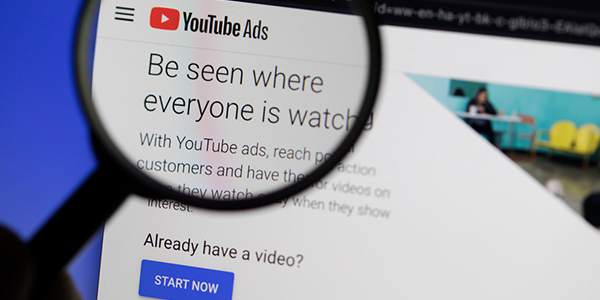 |
||||||||||
|
||||||||||
| Is Google’s Q1 2024 Cookie Deadline a Mistake? |
 |
| The Google cookie deprecation countdown clock is inching closer and closer to its final tick. While many are testing their post-cookie solutions, some are wondering if Google is making the right move with their official deadline. Jeff Green, CEO of The Trade Desk, believes Google is making a mistake. For starters, he cites Google’s privacy and antitrust issues as an Achilles heel in their plans. While Google’s privacy flack has lessened, their antitrust allegations have only worsened. At first, the lawsuits mostly came from federal regulators, but when Gannet filed an antitrust lawsuit against the tech titan, Green felt like the writing was on the wall. He believes Google’s privacy sandbox will mostly benefit Google. “I believe that what Google has proposed to the ecosystem is that they retain a Ferrari and give the rest of the world a bicycle,” said Green about the Privacy Sandbox. A Ferrari or Bike?: If a publisher, like Gannet, that relies on Google’s alleged anti-competitive ad business files a lawsuit against them, would it be foolish to trust their post-cookie solution? Green seems to think so. But the debate remains in the air as testing for the Privacy Sandbox continues. “Most of the scrutiny they’re receiving today is around antitrust violations for anti-competitive behaviors,” said Green. “And so, to offer the world a bicycle while they leverage assets (that many deem as monopolies) to protect their Ferrari, I think, creates a greater risk for them than if they perpetuate the cookie.” |
| Google has been testing the Privacy Sandbox since 2020, but the final two testing periods for the product will occur in Q4 of this year and Q1 of next year. A Testing Refresher: For those who need a reminder of how testing will work.
Publishers' Testing Fatigue: On the other hand, many U.S. publishers expressed that they are experiencing testing fatigue as they prepare for cookie deprecation. In fear of losing incremental revenue, publishers are testing each alternative ID on the market. Yet, other U.S. pubs feel they need more time or resources to test alternative solutions because of how demanding the process is. This causes a bandwagon effect where they try the popular solutions, which may not always work for their use cases. In addition, some publishers believe post-cookie solutions like Alternative IDs only benefit the buy side. Mike Nuzzo, Hearst's VP and head of audience intelligence and insights, asserts that "alternative ID providers boast capabilities like frequency capping, attribution, cross-site analytics and activation (similar to third-party cookies) but require publishers to give up some control." Nuzzo insists that first-party data offerings are the way to go for publishers. Publishers and advertisers have mixed reactions to the third-party cookie deadline, but regardless of opinion, the industry is moving full speed toward cookie deprecation. |
|
| Analysts Assert Google Violated Its Video Ad Standards |
 |
| Google has sifted through many antitrust and privacy violations throughout the years, so what is one more allegation? According to research from Adalytics, the tech company violated its proposed standards when placing video ads on other websites, and it raised questions about its transparency. The Ad Standards: Youtube runs ads on its platforms, and other sites across the web through a program called Google Video Partners.
In response, Google said the report “makes many claims that are inaccurate and doesn’t reflect how we keep advertisers safe. As part of our brand safety efforts, we regularly remove ads from partner sites that violate our policies, and we’ll take any appropriate actions once the full report is shared with us.” |
|
This report took the ad tech world by storm. On the heels of a slew of antitrust lawsuits, new testing phases for the Privacy Sandbox, and the imminent cookie deadline, a scandal is the last thing Google needs.
|
| Around the Water Cooler |
| Privacy Sandbox Popups Start Rolling out in Chrome In the coming weeks, three billion Chrome users, who update to Chrome v115, will begin seeing Privacy Sandbox prompts alerting them that they will now have enhanced privacy in Chrome and more control over the ads that they see with the ability to identify their interests. In the first phase of the nail hitting the coffin, publishers may want to test the user side of this experience and the APIs that the Sandbox has provided as an alternative to third-party cookies. (Gizmodo) Trademark Data Leak Raises Security Concerns A security breach in the United States Patent and Trademark Office (USPTO) has resulted in the unauthorized access and potential exposure of sensitive trademark data through their API. The incident has prompted concerns about the security of intellectual property and the need for robust measures to protect valuable trademarks. (Tech Crunch) Tik Tok Set to Launch In-App Store TikTok announces its foray into e-commerce with the upcoming launch of its first online retail store. The move aims to diversify the platform's revenue streams and capitalize on its massive user base by offering a curated selection of products directly within the app. (Media Post) The AI Shopping Spree Commences AI companies are ramping up their acquisition strategies to bolster their capabilities and stay ahead in the rapidly evolving technology landscape. These acquisitions aim to enhance AI solutions, expand market presence, and tap into new industry domains. (Axios) Kroger Debuts In-house Ad Platform In a move to provide a more unified marketing strategy between on-site and offsite media channels, Kroger is launching a self-service platform that marges ads, retail media, and sefl-service for product listing and display advertising. It’s a play that will grant more control to the retailer and less friction for buyers. (Chain Store Age) |
 |
||||
|
||||
 |
||||
 |
||||
|
||||








